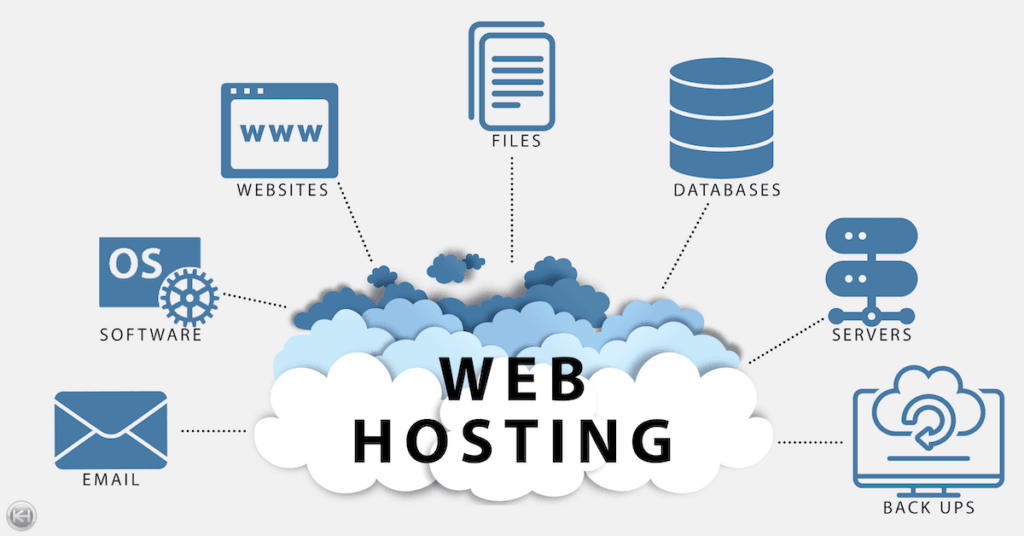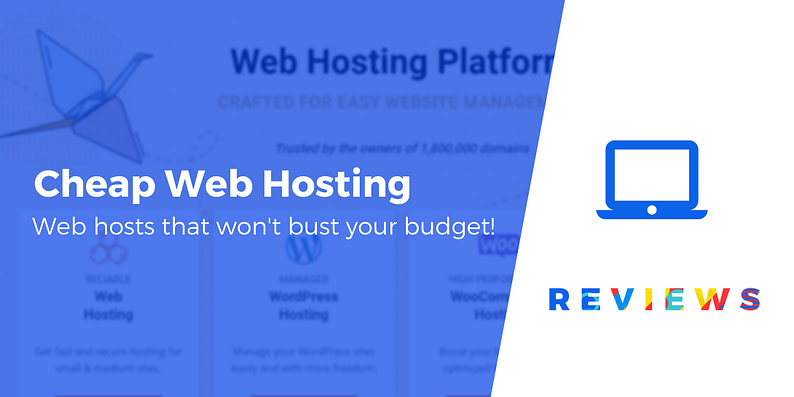Web hosting blog is your one-stop resource for understanding the intricacies of online presence. From choosing the right hosting plan to maintaining a secure and reliable website, this blog offers valuable insights and practical advice for individuals and businesses alike. Whether you’re a seasoned web developer or a complete novice, this blog provides comprehensive guidance to navigate the world of web hosting.
Our aim is to demystify the complexities of web hosting, empowering you to make informed decisions and build a robust online presence. We’ll explore various hosting options, delve into essential features and services, and guide you through the process of setting up and managing your website.
Web Hosting Features and Services
Choosing the right web hosting plan can be overwhelming, especially when you’re faced with a variety of features and services. This guide will help you understand the essential components of web hosting and how they can benefit your online presence.
Domain Registration, Web hosting blog
Domain registration is the process of securing a unique name for your website. Your domain name is your website’s address on the internet, and it’s what users type into their web browser to access your site.
Choosing a memorable and relevant domain name is crucial for brand recognition and attracting visitors.
When you register a domain, you’re essentially reserving that name for a specific period, usually one to ten years. Your web hosting provider typically offers domain registration services as part of their package. You can manage your domain name through your hosting control panel, where you can renew, update, or even transfer it to another provider.
Email Accounts
Email accounts are an essential part of any online presence, allowing you to communicate with clients, customers, and other stakeholders. Web hosting providers offer email accounts as part of their services, enabling you to create professional-looking email addresses that use your domain name.
For example, instead of using a generic free email address like “[email protected],” you can create an email address like “[email protected],” which gives your business a more polished and professional appearance.
Most web hosting control panels provide tools for managing your email accounts, including setting up forwarding rules, creating aliases, and managing storage space.
SSL Certificates
An SSL certificate is a digital certificate that encrypts the communication between your website and visitors, ensuring that sensitive data, such as credit card information, is transmitted securely.
SSL certificates are essential for websites that handle financial transactions, personal information, or any data that requires protection.
When a website has an SSL certificate, it displays a padlock icon in the browser’s address bar and uses the “https” protocol, indicating a secure connection. You can obtain an SSL certificate from your web hosting provider or from a third-party certificate authority.
Backups
Backups are crucial for protecting your website data from loss due to technical issues, malware attacks, or accidental deletions. Web hosting providers typically offer backup services as part of their plans.
Regular backups allow you to restore your website to a previous state if anything goes wrong.
The frequency of backups can vary depending on your provider and plan, but it’s essential to ensure that your website data is backed up regularly. You can usually access and manage your backups through your hosting control panel.
Website Maintenance and Security

A well-maintained website is a reliable and secure online presence. It ensures your website runs smoothly, provides a positive user experience, and protects your data from threats. This section delves into essential website maintenance tasks, security measures, and tips for preventing common threats.
Website Maintenance Tasks
Regular maintenance is crucial for keeping your website up-to-date, secure, and performing optimally. Here are some key tasks:
- Software Updates: Regularly updating your website’s software, including the content management system (CMS), plugins, and themes, is essential. Updates often include security patches that fix vulnerabilities, improve performance, and enhance functionality. Neglecting updates can leave your website exposed to security risks.
- Backups: Regular backups are vital for protecting your website data. Backups allow you to restore your website to a previous state in case of data loss due to technical issues, cyberattacks, or accidental deletions. It is recommended to have multiple backup copies stored in different locations, such as local storage, cloud storage, or external hard drives.
- Security Scans: Regularly scanning your website for vulnerabilities is crucial for identifying and addressing potential security threats. Security scans can detect malware, identify weak passwords, and expose outdated software versions. There are various free and paid security scanning tools available online.
Preventing Website Security Threats
Preventing security threats is an ongoing process that requires vigilance and proactive measures. Here are some tips:
- Strong Passwords: Use strong, unique passwords for your website admin accounts and any other sensitive accounts. Avoid using common passwords or personal information that can be easily guessed.
- Two-Factor Authentication: Enable two-factor authentication (2FA) whenever possible. 2FA adds an extra layer of security by requiring a second authentication factor, such as a code sent to your phone or email, in addition to your password.
- Secure Hosting: Choose a reputable web hosting provider that offers robust security features, such as firewalls, malware scanning, and regular security updates. Shared hosting environments can be vulnerable to attacks from other websites on the same server, so consider a dedicated or VPS hosting solution for enhanced security.
- Website Security Plugins: Install and configure security plugins for your CMS. These plugins can monitor website traffic, detect suspicious activity, and provide real-time security updates. Popular CMS security plugins include Wordfence, Sucuri, and iThemes Security.
- Limit User Access: Grant only necessary access to your website’s backend. Avoid giving unnecessary admin privileges to users, and regularly review user permissions to ensure they are appropriate.
- Keep Content Updated: Regularly update your website’s content, including plugins, themes, and core files. Outdated content can be a target for hackers who exploit vulnerabilities in older versions.
Maintaining a Secure and Reliable Website
Following a comprehensive maintenance checklist can ensure your website remains secure and reliable:
- Regular Software Updates: Update your CMS, plugins, and themes regularly to patch vulnerabilities and improve performance.
- Backups: Implement a regular backup schedule, storing backups in multiple locations for redundancy.
- Security Scans: Perform regular security scans using automated tools to detect vulnerabilities and malware.
- Strong Passwords: Use strong, unique passwords for all website accounts and enable two-factor authentication whenever possible.
- Secure Hosting: Choose a reputable web hosting provider with robust security features and consider a dedicated or VPS hosting solution for enhanced security.
- Website Security Plugins: Install and configure security plugins for your CMS to monitor website traffic, detect suspicious activity, and provide real-time security updates.
- Limit User Access: Grant only necessary access to your website’s backend and regularly review user permissions.
- Keep Content Updated: Regularly update your website’s content, including plugins, themes, and core files.
- Monitor Website Performance: Monitor website performance metrics, such as loading speed, uptime, and resource usage, to identify potential issues and address them promptly.
- Stay Informed: Stay informed about the latest security threats and best practices by subscribing to industry newsletters, attending conferences, and reading security blogs.
Web Hosting Costs and Pricing
Understanding web hosting costs is crucial for budget planning and selecting the right hosting plan. Different hosting providers offer various pricing models and features, influencing the overall cost.
Web Hosting Pricing Models
Web hosting providers employ different pricing models to cater to diverse needs and budgets. These models can be categorized as follows:
- Shared Hosting: Shared hosting is the most affordable option, where multiple websites share the same server resources. This model is suitable for personal websites or blogs with low traffic volumes. Prices typically range from $3 to $10 per month.
- VPS Hosting: Virtual Private Server (VPS) hosting provides dedicated resources on a shared server, offering better performance and security compared to shared hosting. VPS plans usually cost between $10 to $50 per month.
- Cloud Hosting: Cloud hosting utilizes a network of servers to distribute website traffic and resources. This model provides scalability, reliability, and flexibility. Cloud hosting plans can range from $10 to $100 per month, depending on the resources and features.
- Dedicated Hosting: Dedicated hosting provides an entire server dedicated to a single website, offering the highest performance and control. This option is suitable for high-traffic websites or applications with specific requirements. Dedicated hosting plans typically start at $100 per month and can exceed $1,000 depending on server specifications.
Factors Influencing Web Hosting Costs
Several factors contribute to the overall cost of web hosting. These factors include:
- Hosting Plan: The chosen hosting plan significantly influences pricing. Shared hosting is the cheapest option, while dedicated hosting is the most expensive.
- Storage Space: The amount of storage space allocated for website files, databases, and emails affects the cost. More storage space generally results in higher prices.
- Bandwidth: Bandwidth refers to the amount of data transfer allowed for website traffic. Higher bandwidth limits allow for more website visitors and data transfer, leading to increased costs.
- Features: Additional features like email accounts, website builders, security tools, and backups can increase the cost of a hosting plan.
- Location: The location of the server hosting the website can influence pricing. Data centers in specific regions may have different costs due to factors like infrastructure and labor.
- Customer Support: The level of customer support offered by the hosting provider also plays a role in pricing. 24/7 support and technical assistance can add to the overall cost.
Average Web Hosting Prices
The following table summarizes the average pricing for various web hosting plans:
| Hosting Plan | Average Monthly Price |
|---|---|
| Shared Hosting | $3 – $10 |
| VPS Hosting | $10 – $50 |
| Cloud Hosting | $10 – $100 |
| Dedicated Hosting | $100+ |
Note: These prices are approximate and can vary significantly depending on the hosting provider, features, and specific plan details.
Web Hosting for Specific Needs
Choosing the right web hosting plan can be crucial for your website’s performance and success. While general-purpose hosting plans are suitable for many websites, some require specialized solutions to cater to their unique needs.
Web Hosting for E-commerce Websites
E-commerce websites, with their focus on selling products and services online, have specific hosting requirements. These include:
* High Performance: E-commerce websites handle transactions, product images, and customer data, necessitating fast loading speeds and reliable performance.
* Security: Secure Socket Layer (SSL) certificates are crucial for encrypting sensitive data like credit card information, ensuring customer trust and compliance with regulations.
* Scalability: E-commerce websites often experience traffic surges during promotional periods or holidays. Scalable hosting plans allow for resource expansion as needed.
* Database Optimization: E-commerce platforms rely on databases to store product information, customer details, and order history. Optimized databases ensure fast data retrieval and efficient website operation.
Examples of hosting providers catering to e-commerce needs include:
* Shopify: A comprehensive platform offering e-commerce hosting, payment processing, and marketing tools.
* BigCommerce: Another popular platform with a focus on scalability and performance, ideal for high-volume e-commerce businesses.
* WooCommerce: A plugin for WordPress, offering e-commerce functionality and integration with various payment gateways.
Tips for optimizing web hosting for e-commerce websites:
* Choose a hosting plan with ample storage and bandwidth.
* Ensure the hosting provider offers SSL certificates and security features.
* Consider using a content delivery network (CDN) to improve website speed and performance.
* Optimize your website’s code and images for faster loading times.
Web Hosting for Blogs
Blogs, with their focus on content creation and distribution, have different hosting requirements compared to e-commerce websites.
* Content Management Systems (CMS): Blog platforms like WordPress, Blogger, and Medium are built on CMS, which simplify content creation and management.
* Regular Updates: Blogs require frequent updates with new content. Hosting plans with automatic backups and easy updates are crucial.
* Traffic Management: Blogs can experience fluctuating traffic, depending on content popularity. Hosting plans with scalability options are recommended.
* Optimization: Search engine optimization () is essential for blog visibility. Hosting providers with tools for analysis and optimization can be beneficial.
Examples of hosting providers catering to blog needs include:
* Bluehost: A popular choice for WordPress hosting, offering reliable performance and features for bloggers.
* HostGator: Provides a wide range of hosting plans, including shared and dedicated hosting, suitable for blogs of various sizes.
* DreamHost: Known for its excellent customer support and features designed for bloggers, including one-click WordPress installation.
Tips for optimizing web hosting for blogs:
* Choose a hosting plan with a reliable uptime guarantee.
* Select a hosting provider that offers easy content management tools.
* Optimize your blog for search engines by using relevant s and meta descriptions.
* Regularly update your blog with fresh and engaging content.
Web Hosting for Other Specific Website Types
Besides e-commerce and blogs, other website types have specific hosting requirements:
* Portfolio Websites: Portfolio websites showcasing creative work require fast loading speeds and visually appealing designs. Hosting providers with image optimization features and reliable performance are essential.
* Social Media Websites: Social media platforms need robust hosting solutions capable of handling high traffic volumes and user interactions. Scalable hosting plans with advanced security features are crucial.
* Educational Websites: Educational websites often host large files, such as videos and presentations. Hosting providers with ample storage space and bandwidth are necessary.
General Tips for Choosing Web Hosting for Specific Needs
Regardless of the website type, consider these general tips when selecting a web hosting plan:
* Define your website’s specific requirements: Consider traffic volume, storage needs, security concerns, and budget constraints.
* Research hosting providers: Compare features, pricing, customer support, and reviews before making a decision.
* Choose a hosting plan that offers scalability: Ensure your hosting plan can accommodate future growth and traffic increases.
* Prioritize security and reliability: Opt for hosting providers with strong security measures and a proven track record of uptime.
* Seek expert advice: If you’re unsure about your hosting needs, consult with a web hosting expert for personalized recommendations.
Web Hosting Trends and Innovations
The web hosting industry is constantly evolving, driven by technological advancements and changing user demands. This evolution brings forth new trends and innovations that shape the way websites are hosted and accessed. These trends not only enhance website performance and security but also pave the way for future innovations in web hosting technology.
Cloud Hosting
Cloud hosting is a prominent trend in the web hosting industry, offering a flexible and scalable solution for website hosting. In this model, websites are hosted on a network of servers rather than a single physical server. This distributed approach provides several benefits:
- Increased Scalability: Cloud hosting allows for easy scaling of resources based on website traffic and demands. This ensures smooth performance even during peak traffic periods.
- Enhanced Reliability: The distributed nature of cloud hosting makes it highly reliable. If one server fails, the website can seamlessly switch to another server, minimizing downtime.
- Cost-Effectiveness: Cloud hosting offers pay-as-you-go pricing, allowing users to pay only for the resources they use. This can be more cost-effective than traditional hosting, especially for websites with fluctuating traffic.
Managed Hosting
Managed hosting is a service where a hosting provider handles all aspects of server management, including security, updates, and backups. This relieves website owners from the technical burden of server administration, allowing them to focus on other aspects of their business.
- Simplified Management: Managed hosting eliminates the need for website owners to manage server configurations, updates, and security measures.
- Enhanced Security: Hosting providers employ specialized security measures to protect websites from threats like malware and DDoS attacks.
- Improved Performance: Managed hosting providers optimize server performance and ensure efficient resource utilization, leading to faster website loading times.
Serverless Computing
Serverless computing is an emerging trend that allows developers to run code without managing servers. In this model, the hosting provider manages the underlying infrastructure, while developers focus on writing and deploying code.
- Cost-Efficiency: Serverless computing offers pay-per-execution pricing, meaning users only pay for the resources they consume. This can significantly reduce hosting costs, especially for applications with sporadic usage.
- Increased Scalability: Serverless computing automatically scales resources based on demand, ensuring smooth performance even during traffic surges.
- Faster Deployment: Developers can deploy code quickly and easily without worrying about server configurations and management.
Impact of Trends on Website Performance and Security
The trends discussed above have a significant impact on website performance and security:
- Improved Performance: Cloud hosting, managed hosting, and serverless computing all contribute to improved website performance by providing scalable resources, optimized server configurations, and efficient resource utilization.
- Enhanced Security: Managed hosting providers offer robust security measures, while cloud platforms provide built-in security features and tools. Serverless computing also benefits from the security measures implemented by the hosting provider.
Future Directions for Web Hosting Technology
The future of web hosting technology is likely to be shaped by advancements in artificial intelligence (AI), edge computing, and blockchain technology:
- AI-Powered Optimization: AI can be used to optimize website performance, security, and resource utilization. For example, AI-powered tools can identify and mitigate security threats, optimize website content for different devices, and predict and manage traffic spikes.
- Edge Computing: Edge computing brings computing resources closer to users, reducing latency and improving website performance. This is particularly beneficial for applications that require real-time data processing or low latency. For instance, streaming services and online gaming platforms can benefit significantly from edge computing.
- Blockchain Technology: Blockchain technology can be used to enhance website security and transparency. For example, blockchain can be used to store website data securely, prevent data tampering, and provide a transparent audit trail.
Final Conclusion: Web Hosting Blog

The journey to establishing a successful online presence begins with a solid understanding of web hosting. By mastering the fundamentals, you can unlock the potential of the internet and connect with your target audience effectively. This blog serves as your companion, offering expert insights and practical tips to help you navigate the ever-evolving world of web hosting. So, explore our articles, engage with our content, and embark on a journey to create a compelling online presence that resonates with your vision.




